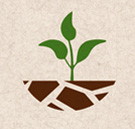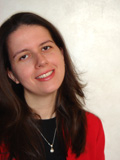


23 September 2013, TRIESTE, ITALY - IAP - The Global Network of Science Academies, which comprises 106 science academies from both developed and developing countries, today responded to the UN-established High Level Panel’s post-2015 agenda for global development and stressed the pivotal role of science in defining the agenda’s priorities. The world’s science academies stand ready to provide expert guidance to the panel and the international community as they further develop the agenda and take action to implement it, said IAP in a statement .
In the past 20 years, academies of science worldwide have promoted and implemented scientifically sound and policy-relevant activities that contribute to the Millennium Development Goals (MDGs). Now, through IAP, academies from all over the world have come together to review the Report of the High Level Panel of Eminent Persons on the Post-2015 Development Agenda and to emphasize the centrality of science in this endeavour. The statement notes IAP activities in areas such as science education, science literacy, water resources management, and population and consumption, and makes specific recommendations regarding the Goal No. 4 “Ensure healthy lives” and Goal No. 12, “Promote collaboration on access to science, technology, innovation and development data,” in the High Level Panel’s report.
In view of the special event on the Millennium Development Goals (MDGs) to be hosted on September 25 by the President-Elect of the UN General Assembly, IAP Co-Chairs Professor Mohamed Hassan (Sudan) and Professor Volker ter Meulen (Germany) commented, “The network of the world’s academies of sciences stands ready to work within a global partnership to provide science-based and independent advice toward assessing the achievements of the MDGs and defining the post-2015 development agenda. IAP can provide an innovative look at these processes, being free from political biases and able to draw upon the best science from all disciplines relevant to poverty eradication and sustainable development.”
The IAP Statement is available in Arabic, Chinese, English, French, Russian and Spanish on the IAP Webpages on the Post-2015 Agenda.
